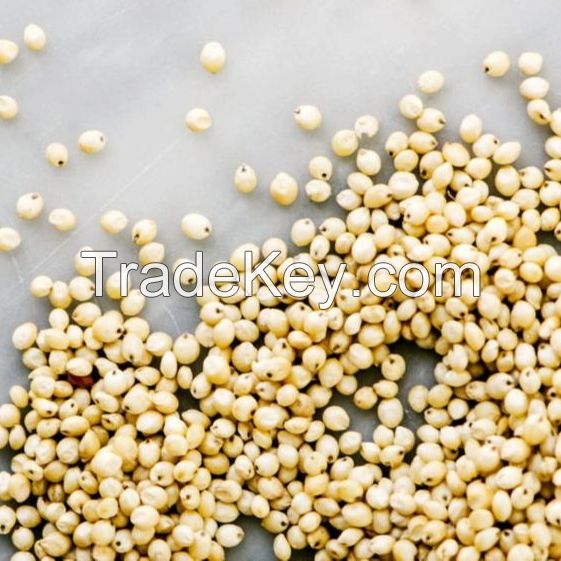
FOB Price
Get Latest Price200 / Metric Ton
|Minimum Order
Place of Origin:
-
Price for Minimum Order:
Minimum Order Quantity:
100 Metric Ton
Packaging Detail:
AS PER CUSTOMERS REQUEST
Delivery Time:
7-21 DAYS
Supplying Ability:
100000 Metric Ton per Month
Payment Type:
T/T, Western Union, Money Gram, PayPal
South Africa
連絡先担当者 Mr. industryboss
Centurion, Gauteng
Sorghum is the fifth most commonly grown grain crop in the world after wheat, rice, corn and barley. But this tasty, gluten free grain often gets overlooked in many Western countries. Sorghum has many health benefits that make it worth including in your diet.
There are over *0 different species of sorghum native to tropical and subtropical regions around the world. The majority are used to feed animals or get processed into secondary products like alcohol and sorghum syrup. Very few varieties are harvested for human consumption.
1. High Nutritional Value
Sorghum has a whopping *2 grams of protein in a 1 cup (**2 gram) serving of the cooked, whole grain. A womans daily recommended protein intake is *6 grams and a mans is *6 grams. On average, that means sorghum contains *3 percent of your daily protein intake.
One serving also contains *7 percent of your daily recommended iron and *5 percent of your phosphorus intake. Its also a good source of magnesium, copper, calcium, zinc and potassium.
A serving of sorghum also contains around *0 percent of your recommended intake of both niacin and thiamin. These two B-vitamins help us to metabolize and properly absorb carbohydrates and nutrients.
2. Rich in Antioxidants
Sorghum contains a wide variety of beneficial phytochemicals that act as antioxidants in the body, such as tannins, phenolic acids, anthocyanins, phytosterols and policosanols.
In fact, the bran layer of sorghum has significantly higher amounts of antioxidants than fruits such as blueberries, strawberries and plums.
Antioxidants help to slow down aging, and antioxidant-rich foods have been linked to a lower risk of heart disease, cancer, type II diabetes and some neurological diseases.
Many studies indicate that whole grain consumption significantly lowers mortality from cardiovascular disease, and antioxidant phytochemicals are believed to be the main reason. They have been shown to reduce blood cholesterol and prevent arterial clotting.
3. Improves Digestive Health
Sorghum is one of the best sources available for dietary fiber. One serving contains *8 percent of your daily recommended intake of fiber.
Fiber is vital for overall digestive function. It keeps your digestive tract moving and of course prevents constipation. But it also helps to regulate blood sugar, lower cholesterol, and prevent diverticulitis, hemorrhoids, gallstones and kidney stones.
4. Inhibits Cancer
Certain phytochemicals in sorghum have also been shown to have cancer-inhibiting properties, particularly in gastrointestinal and skin cancers.
Studies have shown that sorghum consumption is linked to lower incidences of esophageal cancer globally, including parts of Africa, Russia, India, China and Iran. Wheat and corn consumption have been linked to elevated rates of esophageal cancer.
Whole grains in general are correlated with reduced risks of other forms of digestive tract cancer, especially colon cancer. It is unknown if this is due to the phytochemicals or dietary fiber in grains, but as sorghum is high in both, it would certainly provide the same benefits as other grains.